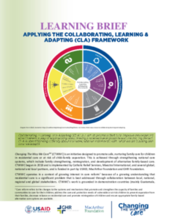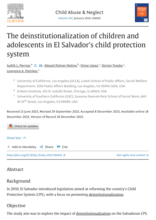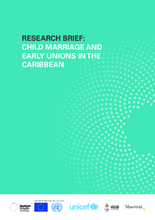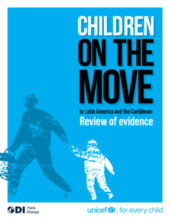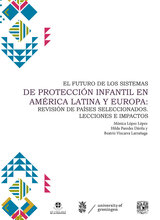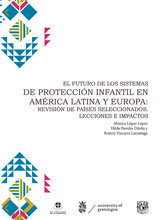Displaying 1 - 10 of 351
A federal judge is expected to rule soon on whether the government must provide shelter, food and medical care to minors while they await processing.
Since care reform is a long and complex process, requiring collaboration between many diverse actors, with different change pathways in diverse contexts, the Changing the Way We Care initiative set out to learn from different demonstration countries, build national and regional knowledge, and reinforce global momentum for family care. This learning brief describes some of that journey.
This brief shares how the initiative used CLA related to the social service workforce strengthening and case management.
The purpose of this study was to explore the impact of deinstitutionalization on the Salvadoran Child Protection System.
This research brief summarizes what is already known about child marriage and early unions (CMEUs) in the Caribbean, complemented by the findings of research commissioned by UNICEF in the framework of the Spotlight Initiative Caribbean Regional Programme and conducted in six Caribbean countries: Antigua and Barbuda, Belize, Guyana, Haiti, Suriname and Trinidad and Tobago.
Case management is used with both families at risk of separation and those where children have already separated and are in the process of being reintegrated, including biological family or placed into an alternative family (e.g., foster or kinship). The end goal of case management is that children are safe and nurtured within a family that is able to care for them, and access needed services that address risks and increase resilience.
Drawing from the learning from participatory research in Latin America and the Caribbean as well as Australia, this webinar will introduce different approaches used to engage individuals with lived experience of alternative care in research efforts and highlight some of the key findings and lessons for meaningful and effective engagement.
This report aims to synthesize recent evidence concerning the experiences and needs of children affected by human mobility in Latin America and the Caribbean, and on how far programmes and policies are meeting those needs. It is motivated by a desire on the part of the United Nations Children’s Fund Latin America and Caribbean Regional Office (UNICEF LACRO) to promote proven responses to human mobility that genuinely respond to the needs of children and families: in their communities of origin, in transit, as they settle in new countries, or if they return to their countries of origin.
El objetivo fundamental del presente libro es el análisis comparativo de las políticas, prácticas e investigaciones en relación a los sistemas de protección infantil en diversos países de América Latina y Europa. Las distintas experiencias recogidas en el texto esperamos contribuyan a aportar a la escasa literatura existente sobre el tema en Iberoamérica, pese a su enorme relevancia para los distintos intervinientes, investigadores, comunidad profesional y tomadores de decisiones.
When Eliza was a teenager, her dream was to volunteer in orphanages all over the world. So when she turned 18, she packed her bags and headed to Guatemala to volunteer in an orphanage.
El objetivo fundamental del presente libro es el análisis comparativo de las políticas, prácticas e investigaciones en relación a los sistemas de protección infantil en diversos países de América Latina y Europa. Las distintas experiencias recogidas en el texto esperamos contribuyan a aportar a la escasa literatura existente sobre el tema en Iberoamérica, pese a su enorme relevancia para los distintos intervinientes, investigadores, comunidad profesional y tomadores de decisiones.

